The general assault before which surrendered Berlin
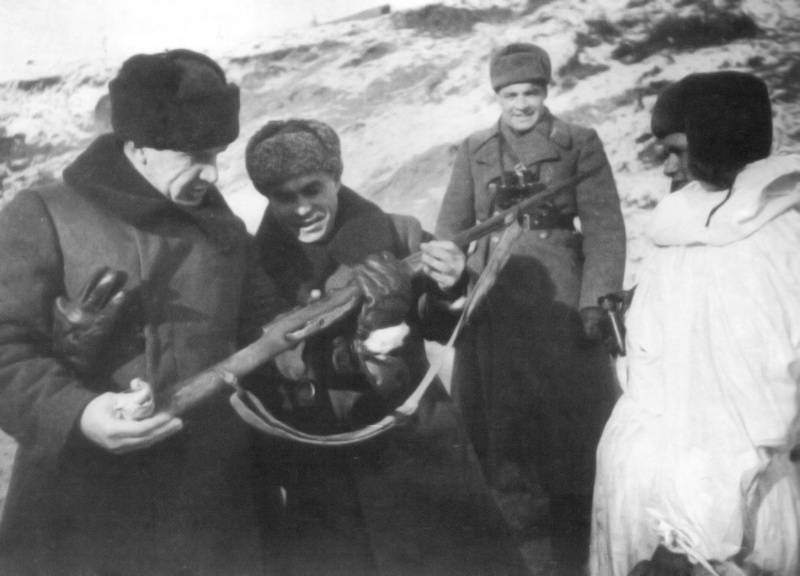
120 years ago, on February 12, 1900, the future legendary commander of the Great Patriotic War, Marshal of the Soviet Union, twice Hero of the Soviet Union Vasily Ivanovich Chuykov, was born. The hero of the defense of Stalingrad and the commander in front of whom surrendered Berlin.
From young to commander
Vasily was born into a large peasant family in the village of Serebryanye Prudy of the Venevsky district in the Tula province. He studied at a parish school. He began to serve in 1917 as a young man in a training mine detachment of the Baltic fleet. In the spring of 1918 he joined the ranks of the Red Army. He entered military training courses, after graduation he was assigned to the Sivers Special Brigade (1st Ukrainian Special Brigade). As an assistant company commander, he fought with the Krasnoyarsk people, then transferred to Kazan on the Eastern Front, where he fought bravely with the Kolchakites. He served as assistant commander, regiment commander. In the spring of 1920, the 43rd Chuikov Rifle Regiment, as part of the 5th Division, was transferred to the Western Front against the Poles. After the war with Poland, along with the regiment remained on the western border, guarded the borders, fought with bandits.
In 1922, he continued his studies at the Military Academy of the Red Army, after graduating from the main faculty, he was left at the academy at the Oriental faculty (Chinese department). At the beginning of 1928 he was sent to China as a military adviser (in fact, a scout). Since 1929, the intelligence chief of the Special Red Banner Far Eastern Army. In 1932 he returned to Moscow as the head of the Advanced Training Courses for the intelligence personnel at the Headquarters of the Red Army. Until 1939, he sequentially commanded the 4th mechanized brigade of the Belarusian Military District, the 5th Rifle Corps, the Bobruisk Army Group, the 4th Army (participating in the Polish campaign of the Red Army), the 9th Army (Winter War), again the 4th Army .
In June 1940, Vasily Chuikov was awarded the rank of lieutenant general. From December 1940 to March 1942 he was again sent to the Celestial Empire, where he was a military attache at the Soviet mission and chief military adviser to Chiang Kai-shek. Chuikov helped the Chinese, who, in the conditions of the Japanese invasion, waged a war among themselves (the Kuomintang troops against the Communists), maintain a united front against Japan.
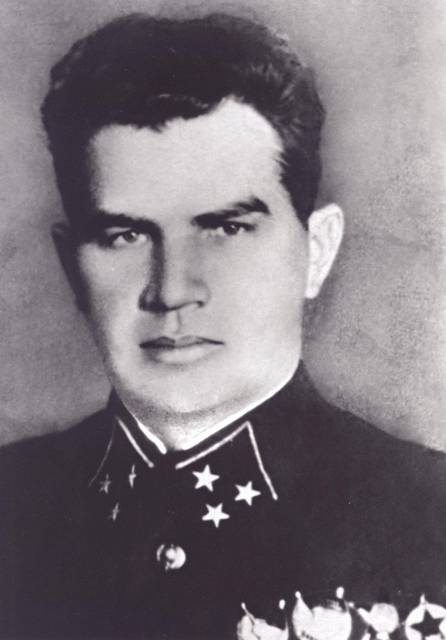
General Sturm
With the outbreak of World War II, the general repeatedly requested that his front be sent to fight against the Germans. In May 1942, he commanded troops on the fronts of the Great War. Commander of the 1st Reserve Army, transformed into the 64th. Since July 1942, Chuikov’s army fought stubborn battles in the Stalingrad direction. From September 1942 until the end of the war, Vasily Chuikov (with a short break in the fall of 1943) commanded the 62nd Army (it became the 8th Guards).
Glory came to Chuikov in Stalingrad. His words became legendary: “There is no land beyond the Volga for us!” The chief of staff of the 62nd Army, N. I. Krylov, recalled the words of the commander: “For the Nazis to be able to take Stalingrad, they need to kill us all!” In his memoirs, he also noted the commander as “alien to the stereotypes (in that situation, adherence to them could ruin everything), boldly bold in making decisions, possessing a truly iron will ... As a military commander, he possesses an extremely high degree of ability not to miss the moment when he needs to to do something important, the ability to anticipate complications and danger, when it’s not too late to prevent them to some extent. ”
The Germans were not able to dump the Chuykovites into the Volga. Toward the end of the defensive period of the Battle of Stalingrad, his army held the area north of the Stalingrad Tractor Plant, the Lower Village of the Barricades, part of the Krasny Oktyabr Plant and several blocks in the city center. Chuikov was a supporter of active combat, proved to be a master of urban battles, created assault groups (from platoon to infantry company). Soviet attack aircraft on ruins and underground communications penetrated the rear of the Nazis and delivered unexpected blows. This experience was later used to storm many other cities, including Berlin. Therefore, Chuikov was nicknamed the "general-assault."
The soldiers loved and respected their commander. Chuikov himself noted:
Subsequently, Chuikov’s guards as part of the South-Western Front (1943rd October Front from October 3) successfully fought in the Donbas, liberating Little Russia-Ukraine, Odessa in the battle for the Dnieper. In June 1944, the 8th Guards Army was withdrawn to the Headquarters reserve, then included in the 1st Belorussian Front. As part of the 1st BF, Chuikov’s army took part in the liberation of Belarus, Poland, fought on the Magnushevsky bridgehead, made a throw from the Vistula to the Oder. Then the guardsmen besieged and took Poznan, fought on the Kyustrinsky bridgehead, stormed Kustrin. The last operation of the 8th Guards Army was Berlin. It was at the command post of Colonel General Vasily Chuikov on May 2, 1945, the head of the German Berlin garrison, General Weindling, signed the surrender of the German capital.
Chuikov recalled the heavy fighting in Berlin:
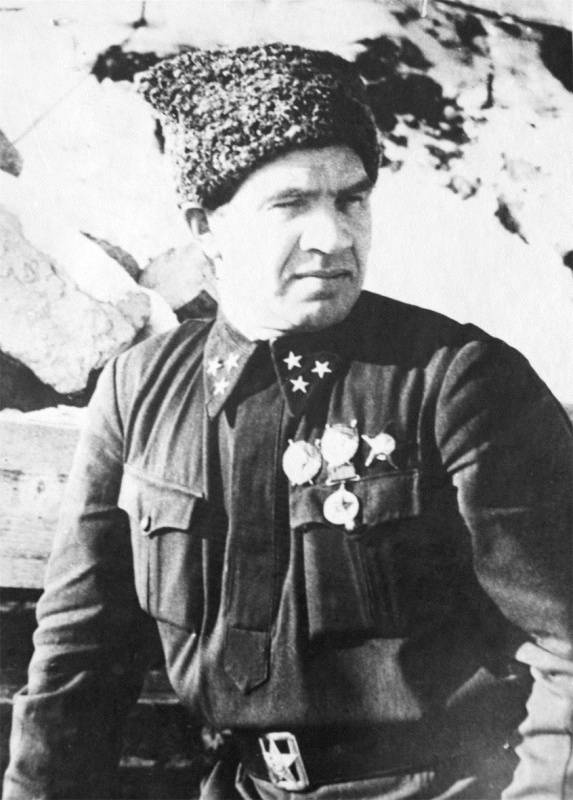
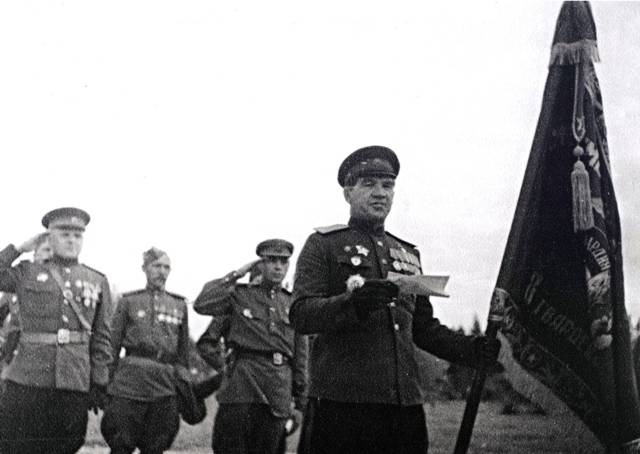
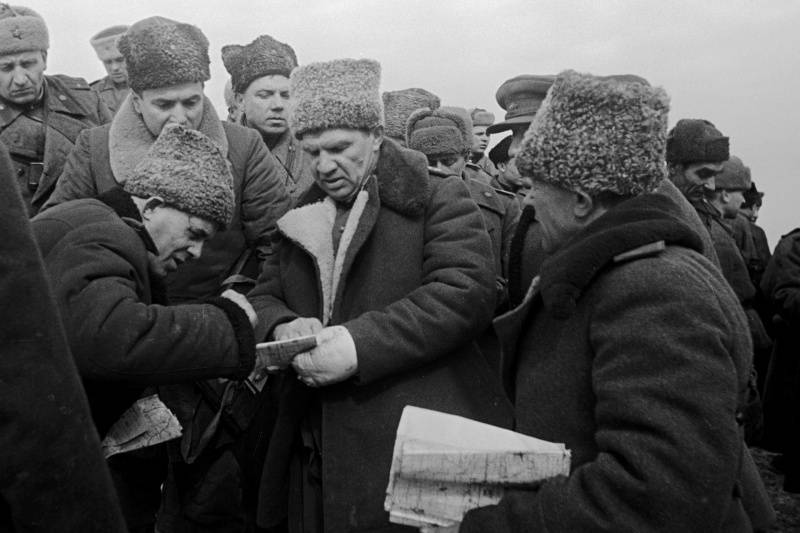
Could Berlin be taken earlier?
It is worth noting: Chuikov believed that our troops could take Berlin three months earlier. In the 60s, his memoirs were published, which caused fierce debate in the Soviet generals. Vasily Chuykov said that the Soviet army could take Berlin back in February 1945, that is, to end the war 2-3 months earlier than in reality. In his opinion, stopping the offensive in the Berlin direction was a gross mistake. “With regard to risk,” Chuikov wrote, “in a war one often has to go to it. But in this case, the risk was fully justified. ” This point of view was sharply criticized by other commanders of the Great War, including Zhukov.
During the Vistula-Oder operation, Soviet troops immediately crossed the Oder and captured a number of bridgeheads. It was only 70 km from the bridgehead in the Kinitz-Neuendorf-Refeld area to the German capital. German troops were linked by battles on the Western Front and in Hungary. Berlin remained open to strike by Zhukov’s armies. However, over the 1st BF front, the so-called. “Pomeranian balcony” - Army Group “Vistula”. The German high command was preparing flank attacks on the Soviet Berlin group. As a result, Stalin, the Soviet General Staff and the command of the 1st BF decided that first it was necessary to eliminate the threat on the flanks, and then to storm Berlin. That is, the Soviet Headquarters did not want to repeat the mistakes of the German command in the autumn of 1941. If the Germans could inflict a strong counterattack on the Zhukov group advancing on Berlin, then our troops would suffer even greater losses than in the real stories.
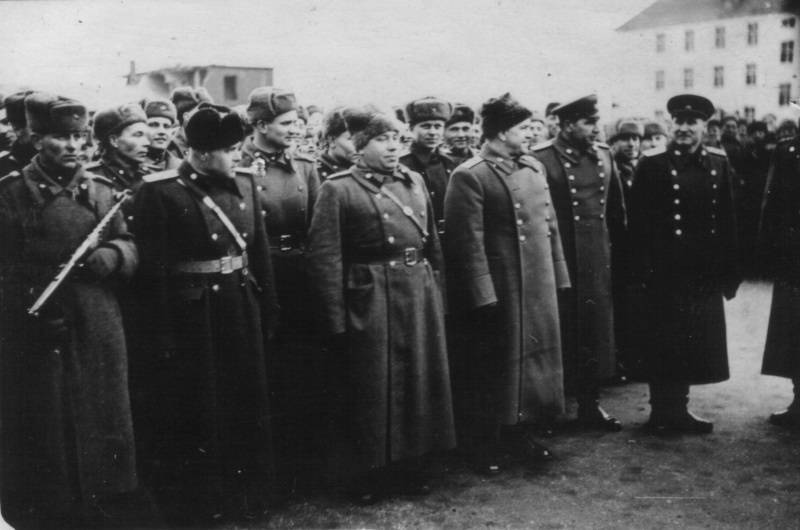
Marshal of the Soviet Union
After the war ended, Chuikov still commanded the 8th Guards Army, which was part of the Group of Soviet Occupation Forces in Germany (GSOVG). Then he was deputy commander of the GSOVG, since March 1949 - commander of the Soviet troops and head of the military administration in Germany. Since October 1949, the head of the Soviet Control Commission (CCM), which exercised control in the territory of the created German Democratic Republic (GDR).
After the death of Stalin, recalled to the USSR. Appointed Commander of the Kiev Military District. In March 1955 he was awarded the title of Marshal of the USSR. Since April 1960, the head of the ground forces of the USSR. In 1964, dismissed from the post of commander in chief of the ground forces. Since 1972 - Inspector General of the Group of Inspectors General of the Ministry of Defense of the USSR (in fact, an honorable resignation). Vasily Ivanovich Chuykov died on March 18, 1982. At his request, twice Hero of the USSR (1944 and 1945) was buried next to his fallen soldiers, on the Mamaev Kurgan in Stalingrad.
The words of the legendary Soviet commander sound like a real testament to the descendants and the entire Russian people:
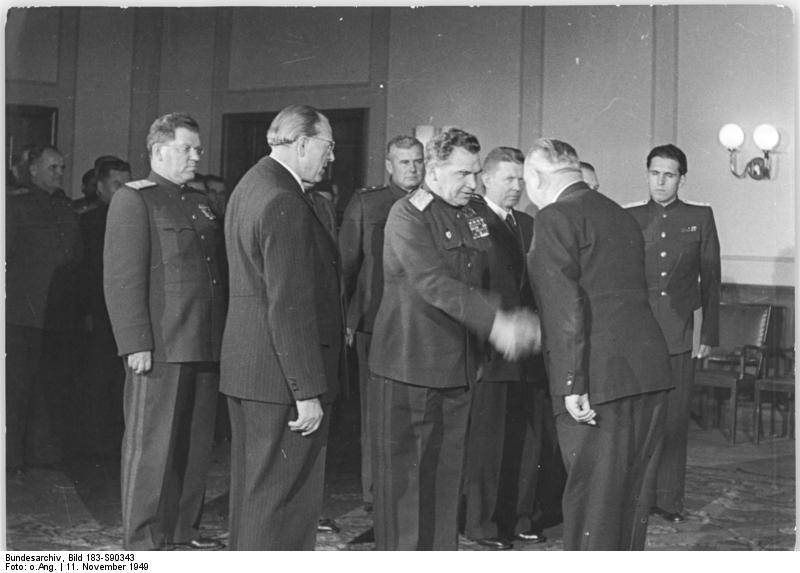
Information